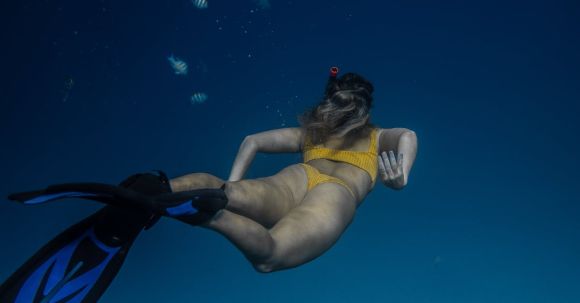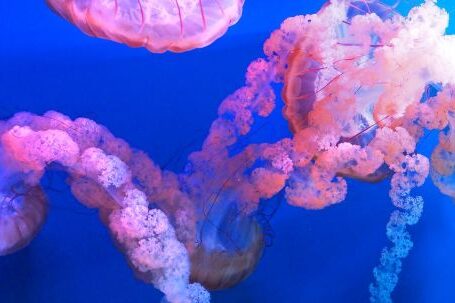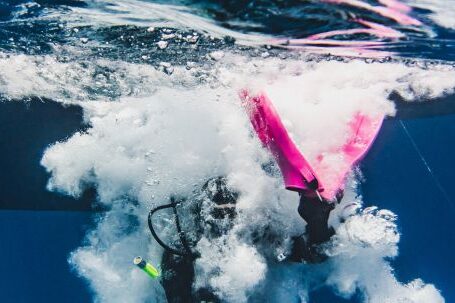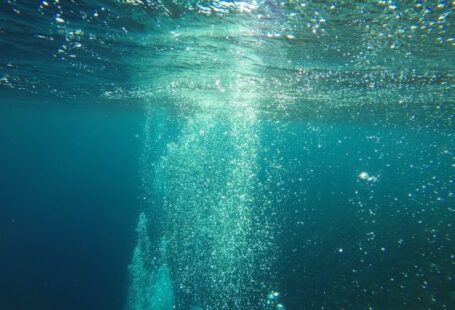When embarking on an underwater adventure, it is essential to consider the impact we have on the environment. One way to minimize our footprint is by using environmental-friendly dive gear. By choosing gear that is designed with sustainability in mind, divers can enjoy their dives while preserving the delicate ecosystems they explore. In this article, we will explore the benefits of using environmentally-friendly dive gear and provide some tips on how to choose the right gear for your next dive.
Protecting Our Oceans
The oceans are home to a vast array of marine life, and it is our responsibility to protect this fragile ecosystem. Traditional dive gear often contains materials that can be harmful to the environment, such as neoprene and PVC. These materials can take hundreds of years to decompose and release harmful toxins into the water. By using environmentally-friendly dive gear, we can minimize these negative effects and help preserve the health of our oceans.
Eco-friendly Wetsuits
One of the most important pieces of dive gear is the wetsuit. Traditional wetsuits are made from neoprene, a synthetic rubber that is derived from petroleum. Neoprene production has a significant carbon footprint and contributes to the depletion of fossil fuel resources. However, eco-friendly wetsuits are now available, made from alternative materials such as natural rubber, recycled plastics, and even plant-based materials. These wetsuits not only reduce environmental harm but also offer the same level of comfort and performance as traditional wetsuits.
Biodegradable Sunscreens
While protecting our skin from the sun is essential, many sunscreens contain harmful chemicals that can damage coral reefs and other marine life. Chemicals like oxybenzone and octinoxate have been found to bleach and kill coral, disrupt hormonal systems in fish, and damage the DNA of marine organisms. Thankfully, there are now biodegradable sunscreens available that are formulated without these harmful ingredients. These sunscreens offer the same level of protection without causing harm to the environment.
Dive Computers and Sustainable Batteries
Dive computers are invaluable tools for divers, providing essential information such as depth, time, and decompression limits. However, traditional dive computers often rely on disposable batteries, which contribute to the growing problem of electronic waste. To minimize this impact, divers can opt for dive computers that use rechargeable or replaceable batteries. Additionally, choosing batteries that are rechargeable and made from eco-friendly materials can further reduce the environmental impact.
Responsible Buoyancy Control Devices (BCDs)
Buoyancy control devices, or BCDs, are essential for maintaining proper buoyancy and stability underwater. Traditional BCDs often contain PVC and other non-biodegradable materials. However, there are now BCDs available that are made from recycled materials and are designed for minimal environmental impact. These eco-friendly BCDs not only help to protect the environment but also provide the same level of functionality and comfort as traditional BCDs.
Choosing the Right Gear
When choosing environmentally-friendly dive gear, there are a few key factors to consider. First, look for gear that is made from sustainable materials such as natural rubber, recycled plastics, or plant-based materials. Second, consider the manufacturing process and choose gear that is produced using eco-friendly practices. Finally, check for certifications or labels that indicate the gear meets environmental standards.
In conclusion, diving responsibly with an environmental-friendly dive gear is crucial for preserving the delicate ecosystems we explore underwater. By choosing gear made from sustainable materials, such as eco-friendly wetsuits, biodegradable sunscreens, and responsible BCDs, divers can minimize their impact on the environment while enjoying their underwater adventures. Remember, every choice we make as divers can have a positive impact on the oceans we love. So, let’s dive responsibly and protect our underwater world for future generations.





